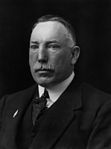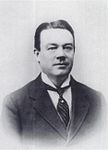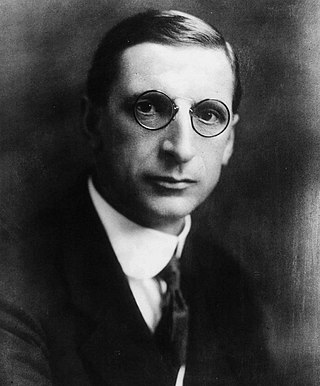
The 1918 Irish general election was the part of the 1918 United Kingdom general election which took place in Ireland. It is a key moment in modern Irish history because it saw the overwhelming defeat of the moderate nationalist Irish Parliamentary Party (IPP), which had dominated the Irish political landscape since the 1880s, and a landslide victory for the radical Sinn Féin party. Sinn Féin had never previously stood in a general election, but had won six seats in by-elections in 1917–18. The party had vowed in its manifesto to establish an independent Irish Republic. In Ulster, however, the Unionist Party was the most successful party.

The 1918 United Kingdom general election was called immediately after the Armistice with Germany which ended the First World War, and was held on Saturday, 14 December 1918. The governing coalition, under Prime Minister David Lloyd George, sent letters of endorsement to candidates who supported the coalition government. These were nicknamed "Coalition Coupons", and led to the election being known as the "coupon election". The result was a massive landslide in favour of the coalition, comprising primarily the Conservatives and Coalition Liberals, with massive losses for Liberals who were not endorsed. Nearly all the Liberal MPs without coupons were defeated, including party leader H. H. Asquith.

East Antrim is a parliamentary constituency in the United Kingdom House of Commons. The current MP is Sammy Wilson of the DUP.

Belfast North is a parliamentary constituency in the United Kingdom House of Commons. The current MP is John Finucane of Sinn Féin.

Belfast South is a parliamentary constituency in the United Kingdom House of Commons. The current MP is Claire Hanna of the SDLP.

South Down is a parliamentary constituency in the United Kingdom House of Commons. The current MP for the constituency is Chris Hazzard of Sinn Féin.

North Down is a parliamentary constituency in the United Kingdom House of Commons. The current MP is Stephen Farry of the Alliance Party. Farry was elected to the position in the 2019 general election, replacing the incumbent Sylvia Hermon. Hermon had held the position since being elected to it in the 2001 general election, but chose not to contest in 2019.
The 1921 Irish elections took place in Ireland on 24 May 1921 to elect members of the House of Commons of Northern Ireland and the House of Commons of Southern Ireland. These legislatures had been established by the Government of Ireland Act 1920, which granted Home Rule to a partitioned Ireland within the United Kingdom.

The 1922 Irish general election took place in Southern Ireland on Friday, 16 June. The election was separately called by a resolution of Dáil Éireann on 19 May and by an order of the Provisional Government on 27 May. The body elected was thus both the Third Dáil and provisional parliament replacing the parliament of Southern Ireland, under the provisions of the 1921 Anglo-Irish Treaty to elect a constituent assembly paving the way for the formal establishment of the Irish Free State. From 6 December 1922, it continued as the Dáil Éireann of the Irish Free State.
Abstentionism is standing for election to a deliberative assembly while refusing to take up any seats won or otherwise participate in the assembly's business. Abstentionism differs from an election boycott in that abstentionists participate in the election itself. Abstentionism has been used by Irish republican political movements in the United Kingdom and Ireland since the early 19th century. It was also used by Hungarian and Czech nationalists in the Austrian Imperial Council in the 1860s.
North Kilkenny was a parliamentary constituency in Ireland, represented in the House of Commons of the Parliament of the United Kingdom. It returned one Member of Parliament (MP) from 1885 to 1922.
South Dublin, a division of County Dublin, was a county constituency in Ireland from 1885 to 1922. It elected one Member of Parliament (MP) to the House of Commons of the Parliament of the United Kingdom, using the first past the post voting system.
Rathmines, a division of County Dublin based on the urban district of Rathmines and Rathgar, was a parliamentary constituency in Ireland. It returned one Member of Parliament (MP) to the House of Commons of the Parliament of the United Kingdom from 1918 to 1922.

The Government of Ireland Act 1920 was an Act passed by the Parliament of the United Kingdom to create two separate parliaments in Ireland: the Parliament of Northern Ireland and the Parliament of Southern Ireland. The Fifth Schedule to this act provided the constituencies for the House of Commons in these two separate parliaments. These same constituencies also replaced those provided in the Redistribution of Seats (Ireland) Act 1918 for representation of Ireland in the House of Commons of the United Kingdom at Westminster. Sinn Féin used these constituencies to elect the Second Dáil (1921–22) and those constituencies in Southern Ireland were used to elect the Third Dáil (1922–23).
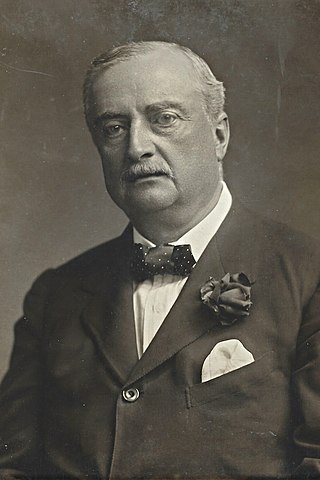
The Irish component of the December 1910 United Kingdom general election took place between 3 and 19 December, concurrently with the polls in Great Britain. Though the national result was a deadlock between the Conservatives and the Liberals, the result in Ireland was, as was the trend by now, a large victory for the Irish Parliamentary Party. The IPP supported the Liberals to form a government after the election. This was to be the party's last victory, however. Due to the outbreak of World War I in 1914, the next general election would not be held until 1918, by which time events both in Ireland and Britain and outside would conspire to see the rise of a new nationalist party, Sinn Féin, and the subsequent demise of the IPP.

The 2017 United Kingdom general election in Northern Ireland was held on 8 June 2017. All 18 seats in Northern Ireland were contested. 1,242,698 people were eligible to vote, up 5,933 from the 2015 general election. 65.6% of eligible voters turned out, an increase of 7.2 percentage points from the last general election.
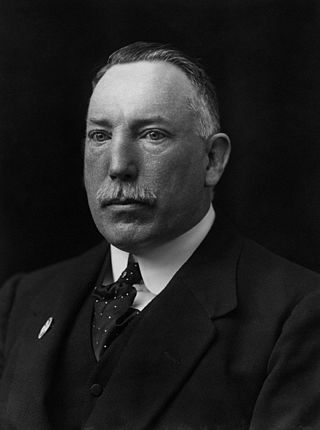
The 1924 United Kingdom general election in Northern Ireland was held on 29 October as part of the wider general election in the United Kingdom. There were ten constituencies, seven single-seat constituencies with elected by FPTP and three two-seat constituencies with MPs elected by bloc voting.
